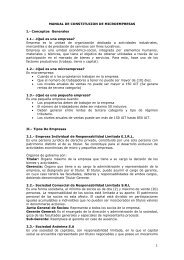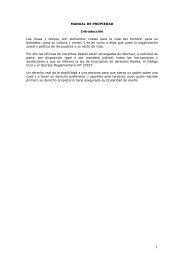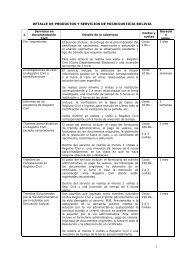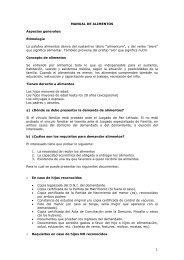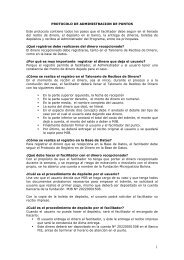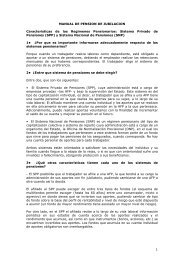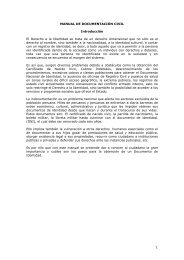ICISS report - International Coalition for the Responsibility to Protect
ICISS report - International Coalition for the Responsibility to Protect
ICISS report - International Coalition for the Responsibility to Protect
You also want an ePaper? Increase the reach of your titles
YUMPU automatically turns print PDFs into web optimized ePapers that Google loves.
The <strong>Responsibility</strong> <strong>to</strong> <strong>Protect</strong> 60<br />
Mandate<br />
7.15 A clear and unambiguous mandate is one of <strong>the</strong> first and most important requirements<br />
of an operation <strong>to</strong> protect. However well or ill-defined <strong>the</strong> end state of intervention, political<br />
vision should encompass what it will take <strong>to</strong> get <strong>the</strong>re – conceptually, as well as in terms of<br />
resources. Without such calculations from <strong>the</strong> outset, a problem of mustering sufficient<br />
“political will” <strong>to</strong> see <strong>the</strong> intervention through <strong>to</strong> a successful conclusion exists. All <strong>to</strong>o often,<br />
this vision has been limited <strong>to</strong> a commitment <strong>to</strong> verify, moni<strong>to</strong>r, and <strong>report</strong> on circumstances<br />
in <strong>the</strong> mission area. Comprehensive and multidimensional peace processes militate against<br />
a stricter focus on <strong>the</strong> art of <strong>the</strong> possible during cease-fire and peace negotiations.<br />
Considerable issues of prestige are at stake in an intervention, which translates in<strong>to</strong> reluctance<br />
among potential contribu<strong>to</strong>rs <strong>to</strong> support a coalition that is tasked with a challenging<br />
mandate, especially where vital interests are not regarded as being engaged.<br />
7.16 The objective of <strong>the</strong> mandate should be <strong>to</strong> allow <strong>the</strong> executing military commander<br />
<strong>to</strong> identify his mission and his tasks properly and <strong>to</strong> propose an operational concept which<br />
promises quick success, paramount <strong>for</strong> an operation which aims at <strong>the</strong> protection of<br />
humans under attack. This will allow <strong>the</strong> commander <strong>to</strong> propose <strong>the</strong> size and composition<br />
of <strong>the</strong> necessary <strong>for</strong>ces and <strong>to</strong> draft appropriate rules of engagement (ROEs) and <strong>to</strong> ask <strong>for</strong><br />
political authorization and <strong>the</strong> allocation of <strong>the</strong> resources necessary <strong>to</strong> mount and <strong>to</strong> sustain<br />
<strong>the</strong> operation.<br />
7.17 Mandates are often adjusted incrementally in reaction <strong>to</strong> new demands during<br />
<strong>the</strong> course of an intervention, and this may well be inevitable given <strong>the</strong> special nature of<br />
interventions <strong>for</strong> human protection purposes where much depends upon <strong>the</strong> attitude and<br />
level of cooperation received from <strong>the</strong> targeted state. While <strong>the</strong> initial mandate may reflect<br />
a preoccupation with human protection, political and security concerns sooner or later<br />
predominate. The more limited <strong>the</strong> initial vision in relation <strong>to</strong> <strong>the</strong> real problem at hand, <strong>the</strong><br />
more likely that mission creep will take place. Somalia is a clear example where <strong>the</strong> initial<br />
response <strong>to</strong> insecurity and famine was not also accompanied by sufficient support <strong>to</strong><br />
achieve long-term solutions. The follow-on UN operation (UNOSOM II) included ambitious<br />
security and political tasks but without commensurate means <strong>to</strong> realize <strong>the</strong>m.<br />
However, <strong>the</strong> mandate should define in clear language what <strong>the</strong> aims of <strong>the</strong> intervention in<br />
<strong>the</strong> various phases of it would be and it should spell out that <strong>the</strong> desired end state is <strong>the</strong><br />
res<strong>to</strong>ration of good governance and <strong>the</strong> rule of law.<br />
Resources and Commitment<br />
7.18 Any operation <strong>to</strong> protect in response <strong>to</strong> large scale humanitarian threat or emergency<br />
requires that <strong>the</strong> countries, as well as <strong>the</strong> relevant international organizations involved, be<br />
prepared <strong>to</strong> sustain <strong>the</strong> operation with <strong>the</strong> resources required. The allocation of sufficient<br />
resources is indispensable <strong>for</strong> success, and failure <strong>to</strong> do so has been a major problem in<br />
<strong>the</strong> past.<br />
7.19 The level of resources committed sends a clear signal of resolve and intent <strong>to</strong> all<br />
concerned. In <strong>the</strong> case of operations mounted by developing countries and <strong>the</strong>ir regional<br />
organizations especially, <strong>the</strong> sustainability of such operations may well be a significant and<br />
ongoing concern. Without broader international support, few developing countries are<br />
likely <strong>to</strong> be in a position <strong>to</strong> make a long-term military commitment <strong>to</strong> an intervention –<br />
a circumstance that could lead <strong>to</strong> <strong>the</strong> premature withdrawal of such <strong>for</strong>ces be<strong>for</strong>e all<br />
important human protection objectives have been secured.



